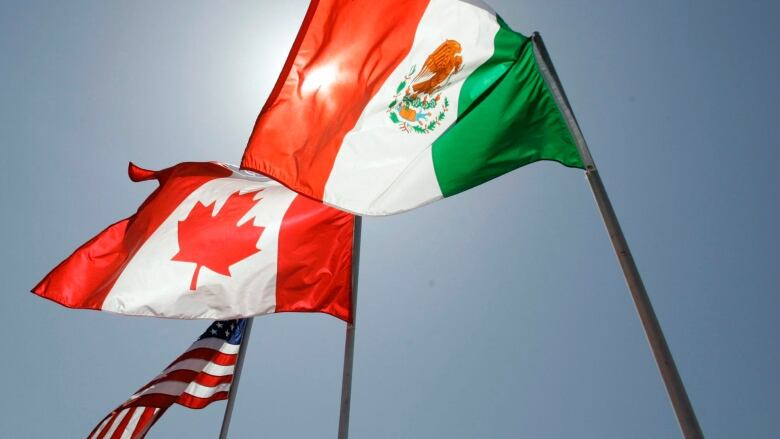Including gender inequality, Indigenous rights in NAFTA talks makes economic sense
And no, this is not just about 'virtue signalling'

During the last round of NAFTA talks in Mexico City, Conservatives here at home suggested they would support the Liberal government's renegotiation efforts, provided they avoided "virtue signalling" on social issues. These included, according to foreign affairs critic Erin O'Toole, "trinkets" such as climate change, gender equality and Indigenous rights.
O'Toole's dismissal of these issues is wrong on two counts. First, in a moral sense: economic powers have an obligation to seek fair trade as much as they do free trade. Otherwise, G7 nations like Canada engage in a race to the bottom that no one can win.
Second, and more importantly: O'Toole assumes that issues such as climate change, gender equality and Indigenous rights are totally divorced from economic concerns. He's wrong. These are not simply social issues, but economic ones, too.
Worsening natural disasters
Let's start with climate change. The were mercifully perhaps even miraculously fewer lives lost to hurricanes Harvey and Irma than initially feared. The economic destruction wrought by these storms was not as forgiving, however.
Addressing climate change is not going to put an end to natural disasters, obviously. There is, however, evidence that the effects of climate change contribute to making storms like Harvey and Irma worse. Sean Sublette, meteorologist with the nonprofit climate change study group Climate Central, is quoted as saying that while not the "proximate cause," climate change can make bad storms "disastrous or catastrophic."
It's not only about tempering the destruction caused by natural disasters, though: addressing climate change unlocks positive economic opportunities. Improving emission standards and air quality lowers health care costs. Increased investment in renewable energies can lower heating and electricity costs for consumers.
-
U.S. unlikely to accept NAFTA gender chapter with teeth: trade experts
-
Canadian hopes for labour mobility hit U.S. wall in NAFTA talks
This is by no means exhaustive analysis, but the point here is that dismissing the inclusion of climate change in NAFTA talks as "virtue signalling" ignores its very real economic impacts.
That's also true for gender inequality. A study released earlier this year by the McKinsey Global Institute found that in Canada alone, gender inequality could be costing as much as $150 billion a year. Equal pay for equal work makes sense as a moral imperative, and as an economic goal.
When we bring the voices of underpaid and underrepresented women to the NAFTA table, we are bringing billions in economic growth.
Indigenous rights
As for Indigenous rights: countries and corporations have, for centuries, profited at the expense of the rights of Indigenous peoples. Moral implications aside, an economic argument certainly exists for bringing such injustice to an end.
In a strictly pragmatic sense, when the rights of Indigenous people are ignored it can get expensive, quickly. The cost of the Standing Rock protests to the taxpayers of North Dakota was $22 million in policing alone as of January. That cost was reportedly $11.8 million only two months earlier in November2016.
The specific costs to the developer Texas-based Energy Transfer Partners were not readily available. However, in June, the company claimed a shutdown would cost $90 million per month during court proceedings to stop the project.
Surely if companies and governments don't see the moral case for respecting Indigenous rights, they can be convinced of the economic case by looking at the price tags tied to disrespecting those rights.
An economy is not made up of numbers and spreadsheets. An economy is made up of people, and the issues that impact their lives will have an effect on the economy as well.
As NAFTA talks continue in Ottawa, Canada can demonstrate to our North American partners and to the worldthat doing the right thing and doing what's profitable are not mutually exclusive ideas. That is an opportunity we cannot afford to pass up.
This column is part ofCBC'sOpinion section.For more information about this section, please read thiseditor'sblogandourFAQ.













_(720p).jpg)


 OFFICIAL HD MUSIC VIDEO.jpg)
.jpg)



























































































